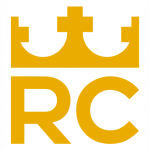15 Jun The Future of Theology (Regis Friends Quarterly 3.4)
Like any Pope, Pope Francis leaves a theological legacy – guideposts along the path of theology. At a conference in Rome last December, Regis College found itself squarely in the middle of that path and headed in the direction Francis was pointing his olivewood crozier.
The International Conference on the Future of Theology December 9 and 10 last year attracted 500 theologians from around the world, including Fraser Centre for Practical Theology director Prof. Gerard Ryan, SJ, Toronto School of Theology executive director Fr. Darren Dias, OP, Regis St. Michael’s dean of theology Dr. Jerry Skira, TST director of academic programs Dr. Michael Attridge and Regis College president Fr. Gordon Rixon, SJ.
The conference was an important follow-up to a significant Apostolic Letter issued Motu Proprio by Francis in 2023, Ad Theologiam Promovendam (“On Promoting Theology”). In the letter, Pope Francis declared the church now demands a fundamentally contextual theology. At the international conference, Pope Francis spoke about what contextual theology is and is not, how it serves the church and how its borders must expand to become more permeable.
This was an exciting moment for Attridge, who has no doubt that Regis and St. Michael’s separately, and now together as RSM, have been on Francis’ wavelength for generations of newly minted theologians.
“As a distinct institution, Regis has had a longstanding tradition of being in the places, in the world, where people need them most,” Attridge said. “The Jesuits, right?”
That tradition is perfectly complemented by St. Mike’s own inclinations.
“St. Michael’s has also had a longstanding tradition of what we might say is historical rather than philosophical theology,” he said.
Both colleges have been encouraging students, for the last half-century at least, to test their theological insights in the real world and among ordinary people, Attridge said. Field placements, dialogue with marginalized communities, dialogue with the arts, integration with all the faculties of one of the great research universities of the English-speaking world have to shape the Regis St. Michael’s identity.
For Rixon, a theology that isn’t contextual just doesn’t compute.
“If you’re not engaging in dialogue with people, what is the conversation about?” he asked. “It’s too self-referential. The opportunity and the challenge (of theology) is to find how God is active in the world and to collaborate in it.”
In his address to the theologians gathered from every continent but Antarctica, Pope Francis’ message last December was that the church needs theology to be creative and inclusive. Creativity and inclusivity rules out ideologies, polarization and any kind of separation from the realities of human lives and cultures, he said.
“Make sure that these women and men find in theology an open house, a place where they can resume their journey, a place where they can seek, find and seek again,” said the Pope at the Pontifical Lateran University.
Rixon looked around at the audience in the giant lecture hall where the Pope was speaking and thought, Francis’ vision is already coming true.
“There were 500 theologians from around the world… turn and look at the audience and it was so clear that it was men and women from every place on earth – white, black, brown. The diversity of the 500 theologians was striking,” he said. “The message was that the contextualization of theology was alive and well and living and thriving around the world. Francis’ vision (for theology) was not just a vision. In a sense, it was a report about what was already happening.”
Attridge, an historian of the Second Vatican Council, noted that a Vatican dicastery bringing 500 theologians to Rome for open, questioning dialogue was almost certainly a first.
“The Vatican pulled together 500 theologians from around the world, and they came,” he said. “Many of them have already been doing a very contextual theology for a long period of time. But to bring them together into the same room and listen to one another, I think that was an important moment.”
Nor was it some sort of convention for leftist, liberal scholars. “Some of them were quite conservative,” Attridge said.
But they were there to address a problem that academic theology has struggled with for at least a century.
“Yves Congar asked this question,” Attridge said. “He characterized 1950s theology as having become a wax mask that you would just put on. It was emotionless. It was expressionless. He (Congar) said that we need to attend to the needs of the people.”
Francis’ solutions are not new either. “Our friend Bernard Lonergan, back in the ‘70s, he basically said that theology was a reflection of the role of religion in a culture,” said Rixon. “Of course one of the insights there that comes from Lonergan, but also is very much present in Francis’ vision, is that it’s religion and cultures, with an ‘s.’”
So if Pope Francis wanted Catholic theologians talking to artists, learning from scientists, listening to the poor and marginalized, RSM knows the way.
“Places like Regis and St. Mike’s have been living this new spirit for quite some time. There’s life and energy and creativity there,” Rixon said.


